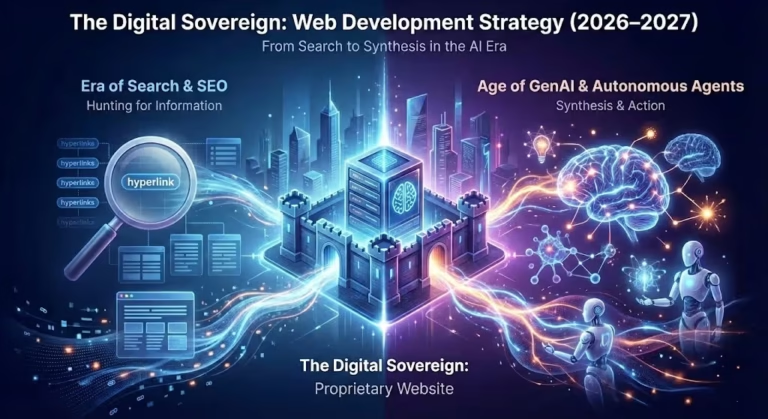Did you know that businesses using marketing automation platforms experience a staggering 451% increase in qualified leads? That’s right! In today’s digital age, marketing automation has become an essential tool for businesses looking to streamline their marketing processes and boost their bottom line. By automating repetitive tasks and leveraging data-driven insights, marketing automation empowers marketers to deliver personalized and targeted campaigns that resonate with potential customers throughout their entire customer journey.
Gone are the days of manually managing email lists or spending hours on repetitive advertising tasks. With marketing automation, businesses can automate lead generation, nurture relationships, and optimize sales funnels. This not only saves valuable time but also ensures that every interaction with potential customers is tailored to their specific needs and preferences. As more companies recognize the benefits of marketing automation, its adoption continues to grow rapidly across industries.
So, if you’re looking to supercharge your marketing efforts and drive meaningful results, it’s time to embrace the power of marketing automation. Stay tuned as we explore how this game-changing technology can revolutionize your approach to marketing.
What is Marketing Automation?
Marketing automation has revolutionized the way businesses approach their marketing strategies. In simple terms, it refers to software platforms that automate repetitive marketing tasks, allowing companies to streamline their processes and focus on more important aspects of their business. With marketing automation solutions in place, businesses can nurture leads, track customer behavior, and analyze campaign performance effectively.
One of the key benefits of marketing automation is that it enables personalized communication at scale. By integrating various channels like email, social media, and websites, businesses can tailor their messages to individual customers based on their preferences and behaviors. This level of personalization helps build stronger relationships with customers and increases the chances of conversion.
Nurturing Leads
Marketing automation plays a crucial role in lead nurturing. It allows businesses to engage with potential customers throughout their buying journey by delivering relevant content at the right time. By understanding customer behavior and preferences through data analysis, businesses can create targeted campaigns that resonate with their audience. This helps move leads through the sales funnel more efficiently.
Tracking Customer Behavior
Understanding customer behavior is essential for effective marketing strategies. Marketing automation provides valuable insights into how customers interact with your brand across different touchpoints. From email opens and clicks to website visits and social media engagement, every interaction is tracked and analyzed. This data helps marketers gain a deeper understanding of customer interests and preferences, enabling them to deliver more personalized experiences.
Analyzing Campaign Performance
Measuring the success of marketing campaigns is vital for making data-driven decisions. Marketing automation platforms offer robust analytics tools that provide valuable insights into campaign performance metrics such as open rates, click-through rates, conversion rates, and ROI. These insights help marketers identify what’s working well and what needs improvement so they can optimize future campaigns for better results.
Integration Across Channels
Marketing automation allows seamless integration across multiple channels such as email marketing, social media management, and website tracking. This integration ensures consistent messaging across all touchpoints, providing a cohesive brand experience for customers. It also enables businesses to automate tasks like email scheduling, social media posting, and lead scoring, saving valuable time and resources.
Elevate your marketing game with Kha Creation’s expertise in automation – contact us now!
How Does Marketing Automation Work?
Marketing automation is a powerful tool that helps businesses streamline their marketing efforts and engage with customers more effectively. Let’s take a closer look at how marketing automation works and the key components involved.
Triggers and Workflows
At the heart of marketing automation are triggers and workflows. These processes automate actions based on user behavior, allowing businesses to deliver personalized experiences to their customers. Triggers can be set up to respond to specific events or milestones in the customer journey, such as signing up for a newsletter or making a purchase. Workflows then dictate the series of actions that occur in response to these triggers.
Comprehensive Customer Profiles
To deliver personalized experiences, marketing automation collects data from multiple touchpoints. This data is used to create comprehensive customer profiles that provide valuable insights into individual preferences, behaviors, and interests. By understanding their audience better, businesses can tailor their marketing campaigns accordingly and send targeted messages that resonate with each customer.
Automated Campaigns
With marketing automation, businesses can set up automated campaigns that run without manual intervention. These campaigns can be triggered by specific events or conditions defined in the workflows. For example, if a customer abandons their shopping cart, an automated campaign can be triggered to send them a reminder email with incentives to complete their purchase. These campaigns save time and effort while ensuring timely and relevant communication with customers.
Lead Scoring
Lead scoring is another essential aspect of marketing automation. It involves assigning values or scores to leads based on predefined criteria such as engagement level, demographics, or buying intent. This allows businesses to prioritize leads and focus their efforts on those most likely to convert into customers. By segmenting leads effectively through lead scoring, marketers can deliver targeted content that resonates with each segment’s needs and interests.
The Benefits of Marketing Automation
Marketing automation offers a wide range of benefits that can greatly impact the success of businesses. From increased efficiency to personalized messaging, here are some key advantages of implementing marketing automation:
Increased Efficiency through Automated Processes
One of the primary benefits of marketing automation is its ability to streamline and automate various tasks and processes. By automating repetitive and time-consuming tasks such as email campaigns, social media scheduling, lead scoring, and data management, businesses can save valuable time and resources.
Automated processes allow marketers to focus on more strategic activities, such as campaign planning and creative development.
With marketing automation tools handling routine tasks, teams can work more efficiently without being overwhelmed by manual labor.
Personalized Messaging for Improved Customer Engagement
Marketing automation enables businesses to deliver highly personalized messages tailored to individual customers’ preferences and behaviors. This level of personalization helps foster stronger connections with customers and drives higher engagement rates.
By analyzing customer data and behavior patterns, marketing automation tools can segment audiences based on specific criteria.
Marketers can then create targeted campaigns that resonate with each segment’s unique needs and interests.
Enhanced Lead Nurturing for Higher Quality Leads
Effective lead nurturing is crucial for converting prospects into customers. Marketing automation empowers marketers to nurture leads throughout their buying journey by delivering relevant content at the right time.
With marketing automation tools, businesses can set up automated workflows that guide leads through a series of personalized touchpoints.
These workflows ensure leads receive timely information that aligns with their stage in the sales funnel, increasing the likelihood of conversion.
Data-driven Insights for Better Decision-making
Marketing automation provides access to valuable data insights that enable marketers to make informed decisions about their strategies. By tracking key metrics and analyzing campaign performance, businesses gain valuable insights into what works best for their target audience.
Marketing automation platforms offer robust reporting capabilities that provide real-time visibility into campaign performance.
Marketers can use this data to optimize their strategies, identify areas for improvement, and make data-driven decisions that drive better results.
Discover the future of marketing with Kha Creation – get in touch for automation solutions.
Audience Monitoring and Targeting Strategies
Tracking website visitors is a powerful tool that provides valuable insights into audience behavior. By monitoring their actions, we can gain a deeper understanding of what drives their engagement and conversions. This information allows us to optimize our marketing strategies and tailor our messaging to meet their needs effectively.
One effective strategy is behavioral segmentation, which involves dividing customers into different groups based on their actions or preferences. By analyzing customer behavior, we can create targeted campaigns that resonate with specific segments of our audience. For example, if we notice that a group of customers frequently engages with our blog content but rarely makes a purchase, we can develop campaigns aimed at converting them into paying customers.
Dynamic content customization is another crucial aspect of audience monitoring and targeting. With this approach, we can deliver personalized experiences by tailoring the content displayed to each user based on their behavior or profile data. For instance, if a customer has previously shown interest in certain products or services, we can dynamically adjust the content they see on our website or in email campaigns to highlight those offerings.
Retargeting campaigns are an effective way to reengage potential customers who have shown interest in our brand but haven’t made a purchase yet. By placing relevant ads in front of these individuals as they browse other websites or social media platforms, we increase the chances of bringing them back to our site and completing a conversion. Retargeting helps keep our brand top-of-mind and reminds potential customers about the value they may have missed out on.
Social media plays a significant role in audience monitoring and targeting strategies as well. By leveraging social profiles and user data from various channels, we can better understand our audience’s interests, demographics, and preferences. This knowledge enables us to create highly targeted campaigns that resonate with specific segments of our audience across different social media platforms.
Key Steps for Effective Marketing Automation
Define Clear Goals and Objectives
Before implementing marketing automation tools, it is crucial to define clear goals and objectives. Take the time to identify what you want to achieve through your automated campaigns. Are you aiming to increase sales, generate leads, or improve customer retention? By having a clear understanding of your goals, you can align your automation efforts accordingly.
Map Out the Customer Journey
To create effective automated campaigns, it is essential to map out the customer journey. Identify key touchpoints where automation can be utilized to engage with your audience. From initial contact through the purchasing process and beyond, understanding the customer journey enables you to deliver targeted messages at each stage. By mapping out this journey, you can ensure that your automation efforts are relevant and timely.
Create Compelling Content
Compelling content is at the heart of successful marketing automation. Craft messages that resonate with your target audience and address their pain points or desires. Whether it’s through emails, social media posts, or landing pages, ensure that your content is engaging and valuable. Personalize your messages based on customer preferences or behavior whenever possible. Remember, compelling content not only captures attention but also drives action.
Continuously Monitor Campaign Performance
Once your automated campaigns are up and running, don’t just sit back and relax – continuously monitor their performance. Keep a close eye on key metrics such as open rates, click-through rates, conversions, and ROI. Analyzing this data allows you to make data-driven adjustments to optimize campaign effectiveness. Experiment with different subject lines, calls-to-action (CTAs), or timing to see what resonates best with your audience.
Make Data-Driven Adjustments
Data should be the driving force behind any marketing automation strategy. Use analytics tools to gain insights into customer behavior patterns and preferences. Leverage this information to refine your campaigns further and make data-driven adjustments as needed. For example, if you notice that a particular email is underperforming, try A/B testing different elements to improve its effectiveness. By continuously refining and optimizing your automated campaigns, you can maximize their impact.
Choosing the Right Marketing Automation Tools
Choosing the right tools is crucial for the success of your business. With so many options available in the market, it can be overwhelming to find the perfect fit. However, by considering your business needs, budget, scalability, and ease of use, you can make an informed decision that aligns with your objectives.
Consider Your Business Needs
Before diving into the world of marketing automation tools, take a step back and evaluate what your business truly needs. Identify your pain points and areas where automation can bring significant improvements. Are you looking to streamline email marketing campaigns? Or perhaps you want to automate lead nurturing processes? Understanding your specific requirements will help narrow down your choices.
Evaluate Features and Capabilities
Once you have a clear understanding of your business needs, it’s time to evaluate the features and capabilities of different marketing automation platforms. Look for tools that offer robust functionality in areas such as email marketing, lead generation and scoring, customer segmentation, analytics, and reporting. Consider whether they provide customizable workflows or templates that align with your unique requirements.
Integration Options
Marketing automation doesn’t work in isolation; it should seamlessly integrate with other tools and systems you use in your marketing stack. Look for platforms that offer integration options with popular CRM systems like Salesforce or HubSpot. This integration allows for smooth data flow between different platforms, enabling a holistic view of customer interactions across various touchpoints.
Read Reviews and Seek Recommendations
To gain insights from real users’ experiences and industry experts’ opinions about different marketing automation tools, read reviews on trusted websites or forums. Pay attention to feedback regarding ease of use, customer support quality, reliability, and overall user satisfaction. Seek recommendations from peers or colleagues who have hands-on experience with specific platforms.
Implementing a Successful Marketing Automation Strategy
To achieve effective marketing and maximize the impact of your marketing efforts, it’s crucial to implement a successful marketing automation strategy. This involves aligning your marketing and sales teams, developing comprehensive buyer personas, testing and optimizing campaigns regularly, and providing ongoing training and support. Let’s dive into each of these points in more detail.
Align Marketing and Sales Teams
Aligning your marketing and sales teams is essential for a seamless lead handoff and collaboration. When both teams work together closely, they can ensure that leads generated through marketing efforts are effectively nurtured by the sales team. This alignment allows for better communication between the two departments, resulting in improved lead conversion rates.
Pros:
- Increased efficiency in lead management.
- Improved customer experience due to streamlined processes.
- Higher chances of closing deals through effective collaboration.
Cons:
- Initial resistance or reluctance from either team to collaborate.
- Potential challenges in establishing clear roles and responsibilities.
Develop Comprehensive Buyer Personas
Developing comprehensive buyer personas is key to guiding targeted messaging in your digital marketing campaigns. By understanding your target audience at a deep level, you can create personalized content that resonates with them. This helps increase engagement, conversions, and customer retention.
Pros:
- More effective targeting of potential customers.
- Enhanced customer experience through tailored messaging.
- Improved ROI on marketing campaigns.
Cons:
- Time-consuming process to gather accurate data for persona development.
- The need for continuous updates as consumer behavior evolves.
Test and Optimize Campaigns Regularly
Regularly testing and optimizing your marketing campaigns is crucial for improving their performance over time. By analyzing data and metrics, you can identify what works best for your audience and make necessary adjustments to optimize results. This includes A/B testing different elements such as subject lines in email campaigns or visuals in social media ads.
Pros:
- Increased effectiveness of marketing campaigns.
- Higher conversion rates and ROI.
- Improved understanding of your target audience.
Cons:
- Requires time and resources for data analysis.
- Potential challenges in identifying the right metrics to measure success.
Provide Ongoing Training and Support
To maximize the effectiveness of your marketing automation, it’s important to provide ongoing training and support to your marketing team. This ensures that they have a deep understanding of the tools and techniques involved in executing successful marketing campaigns. Regular training sessions, workshops, or access to educational resources can help your team stay up-to-date with the latest trends and strategies.
Pros:
- Empowers your team with the skills needed for effective marketing automation.
- Increases productivity and efficiency in marketing operations.
- Promotes continuous learning within the team.
Cons:
- Time-consuming process to organize regular training sessions.
- Potential resistance from team members who may be resistant to change.
Implementing a successful marketing automation strategy requires aligning teams, developing buyer personas, testing campaigns, and providing ongoing support. By following these steps, you can enhance your digital marketing efforts, improve customer experience, and achieve better results. Remember that implementing an effective strategy takes time and effort but can yield significant benefits for your business.
Let Kha Creation transform your marketing strategies through automation – contact us today!
Conclusion: The Power of Marketing Automation
Congratulations! You’ve now gained a solid understanding of marketing automation and its incredible potential to supercharge your business. By automating repetitive tasks, nurturing leads, and delivering personalized experiences, marketing automation empowers you to focus on what really matters: building relationships with your customers.
But don’t just take our word for it. Start harnessing the power of marketing automation today and witness the transformative impact it can have on your business. Streamline your processes, increase efficiency, and watch as your customer engagement soars to new heights. Remember, success is just a few clicks away!
Ready to revolutionize your marketing? Contact Kha Creation for top-notch automation solutions.


